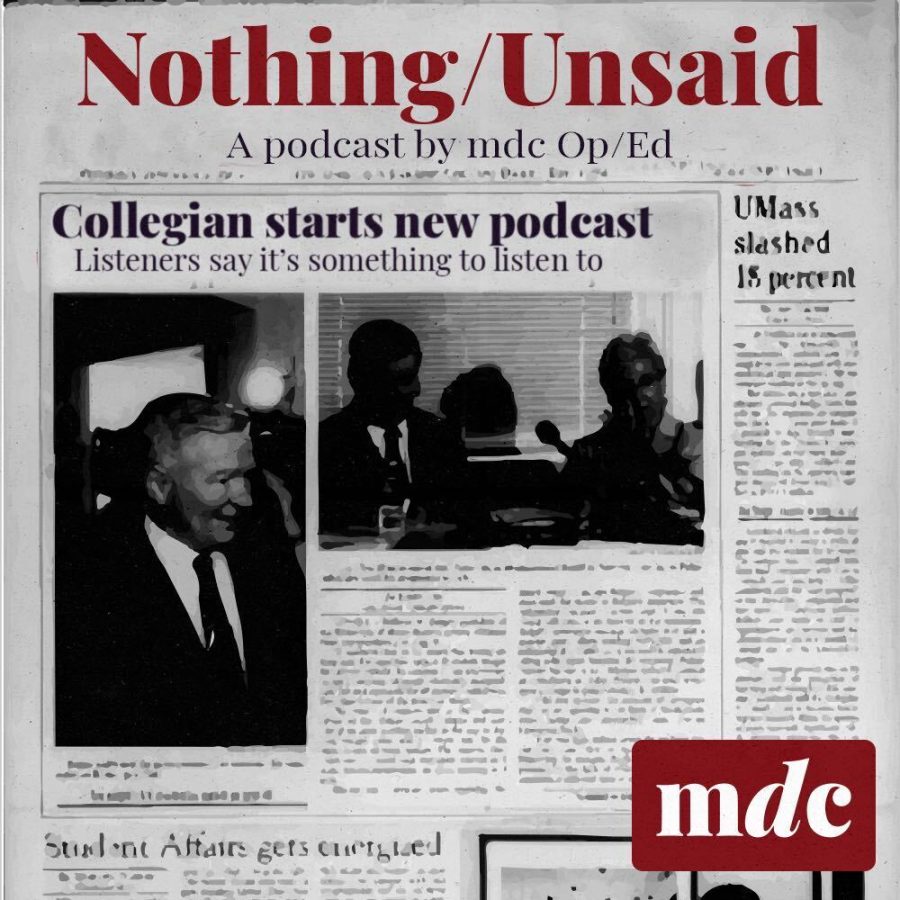Have you ever heard of the phrase, “War on Christmas?” It’s a common exaggeration made by those who perceive a societal change from people saying “Merry Christmas” to now saying “Happy Holidays.” An exaggeration made by our current president contained the same type of fallacy, when he said that under a Hillary Clinton presidency, you could “rip the baby out of the womb” in the ninth month of a pregnancy.
These are examples of logical fallacies—lapses in rationale that can be used as a debate tool to further a person’s argument. Specifically, they’re both “straw man” fallacies, in which the speaker misrepresents their opponent’s talking points in order to more easily argue against them.
Neither of the above statements are true. People aren’t seeking to prevent Christians from celebrating Christmas, and Trump’s claim is just a crude and inaccurate description of abortion. But both of those talking points demonize the opponent’s arguments and make it easier to support the other side.
These are ways to win an argument without making a real point, allowing for little research and giving the impression that the debater doesn’t know what they’re talking about.
Last week, a column ran in the Massachusetts Daily Collegian titled “Why I didn’t celebrate ‘Apologize to Indigenous Peoples Day,’” in which Bradley Polumbo argued that people, specifically white people, shouldn’t feel bad for the mistakes of their ancestors.
The central claim was based on an email Polumbo received from an advisor informing him that there wouldn’t be classes on “Apologize to Indigenous Peoples Day.” Polumbo took issue to the “apologetic strain” of that email, Indigenous Peoples Day and other holidays around the world.
But when the town of Amherst decided a year ago to celebrate Indigenous Peoples Day, it was in hope of remembering the atrocities that stemmed from European exploration. The day has little to do with apology, but the article was constructed around the idea that we are being told to be remorseful.
This is where the logical fallacy comes into play. In describing Indigenous Peoples Day, Polumbo seemed to suggest that the main idea was atonement—a day in which we all must repent for the sins our ancestors committed against the Native peoples of North America.
Polumbo wrote that “the notion that white people bear any responsibility for the actions of their ancestors is nothing short of absurd,” thus simplifying his opponents’ argument down to “They want me to apologize for something I had no control over.”
Essentially, that breaks down the idea that we should recognize and remember the genocide of up to 95 percent of the Native American population into an argument based around apologizing for something someone else did. It makes it a false argument—a straw man or a cardboard cutout of what was previously a difficult point to disagree with.
Many sentences in the closing paragraphs of the column contain their own fallacies:
Polumbo writes, “I will not apologize for genocides committed hundreds of years before my birth, or for a system of slavery whose abolishment predates my first words by centuries,” despite the fact that no one asked for his apology.
He continues, “They may have been carried out by people who look like me, but I played no part in these crimes and bear no responsibility.” Nobody had insinuated that white people today hold any blame in this scenario.
Finally, he states, “Asking people like me to seek forgiveness is like blaming Californians, who voted overwhelmingly for Hillary Clinton, to apologize for Donald Trump’s buffoonery on the world stage.” Asking for apologies in both scenarios would in fact be ridiculous, save for the fact that few Californians are asked to apologize for Trump’s controversial remarks, in the same way people of European descent have not been asked to apologize to Native Americans.
Indigenous Peoples Day isn’t based on making white people feel guilty for personal compliance with the genocide enacted by Christopher Columbus and other white settlers. It is about recognizing and remembering important cultures destroyed by European superiority. The day asks for just a bit of human decency in honoring those killed. It doesn’t put a college student born five centuries after the fact on trial.
This is not an attack on an alternate opinion, nor does it have anything to do with point of view or political leaning.
This is about a logically flawed argument that was brought to a mass audience, which can encourage more similarly faulty debate styles to become the norm. This is about arguments that lower the standard of constructive debate on campus.
I encourage anyone looking to speak their mind to come to the table with something to contribute. But don’t use a fallacy in order to win an easy argument. That’s unbecoming of the high quality of journalism this campus deserves.
Will Katcher can be reached at [email protected] and followed on Twitter at @will_katcher.





















Owen Goetemann • Oct 22, 2017 at 12:20 am
So you spend the entire article describing what a straw man is, but your article is just one big straw man. When it comes time to say what Indigenous Peoples Day is really about, you describe it as “recognizing and remembering important cultures destroyed by European superiority.” That is the crux of your argument? Really? Can you substantiate your claims? And does this imply that people of European descent should feel shame? Is it fair we hold Europeans from the 15th century to the same societal and moral standards as Europeans today? How about answering some of the necessary questions, instead of creating a veil of smugness around an article of falsehood.
Miranda • Feb 25, 2022 at 12:43 pm
OK
Baracutey • Oct 20, 2017 at 10:47 pm
1. “Despite the fact no one asked (Polumbo) for his apology for genocides…”
{Declaration of Quito 1990, Section- 500 years resolution, No. 18} “We rejects[sic] the payment of the foreign debt by our countries and demand indemnification for the genocide, massacres and pillage of our peoples.”
2. “Nobody had insinuated that white people today hold any blame in this scenario…”
{Declaration of Quito 1990, Section- Introduction} “The existing nation states of the Americas, their constitutions and fundamental laws are judicial/political expressions that negate our socio-economic, cultural and political rights. From this point in our general strategy of struggle, we consider it to be a priority that we demand complete structural change.”
3. “…people of European descent have not been asked to apologize to Native Americans…”
{Declaration of Quito 1990, Section- 500 years resolution, No. 13} “If Spain is willing to pay for the damages caused by the invasion, we demand that these funds be channeled toward plans and projects which we have developed, which we administer and which are used to satisfy the needs of our peoples.”
{Declaration of Quito 1990, Section II- Mandate of the Indian Peoples of America, Item M} “We demand that governments and churches vacate and return our territories as an act of reparation for the 500 years of genocide and ethnocide, and we demand the repatriation and return of our cultural wealth, pillaged and profaned by Europeans.”
4. “The day asks for just a bit of human decency in honoring those killed…”
{Declaration of Quito 1990, Section- Commission on Indigenous Organization, No. 7} “The Indigenous organizations of the Americas should confront together the 500th anniversary, planning coordinated actions and reclaiming significant dates such as October 12th.”
———————————–
Mr. Polumbo was more correct than he ever imagined. Now you all can all indulge in publishing articles about why did we “re-think” without much research.
Chuck Anziulewicz • Oct 19, 2017 at 9:54 am
It Bill O’Reilly was still around, by now he’d be ramping up his annual “War on Christmas” rhetoric.
I’m always amused when Christians claim they’re being persecuted in the United States. Most Americans are Christian, virtually ALL religious programs on TV and radio are Christian-oriented, and the ONLY religious holiday that causes both the private and public sectors to virtually grind to a halt is a Christian holiday. Non-Christians have little choice but to go along for the ride. So don’t get all bent out of shape if people put up lights and decorations, and have parties and give gifts, WITHOUT necessarily bowing down before Baby Jesus.